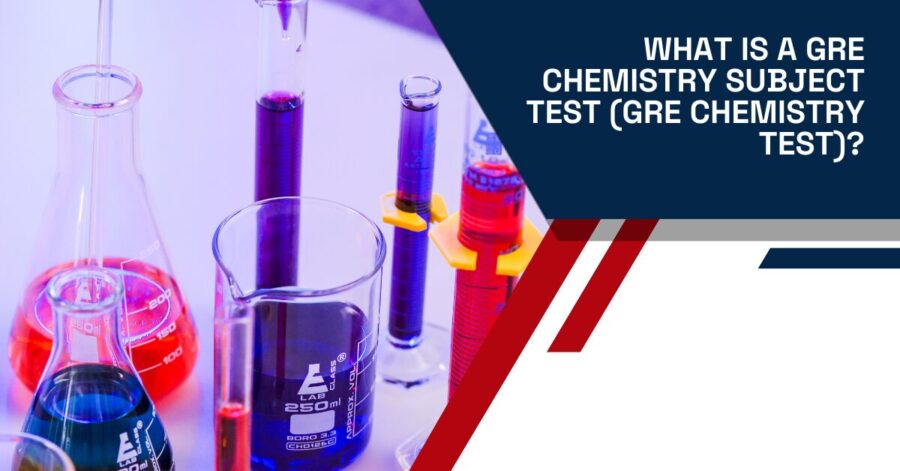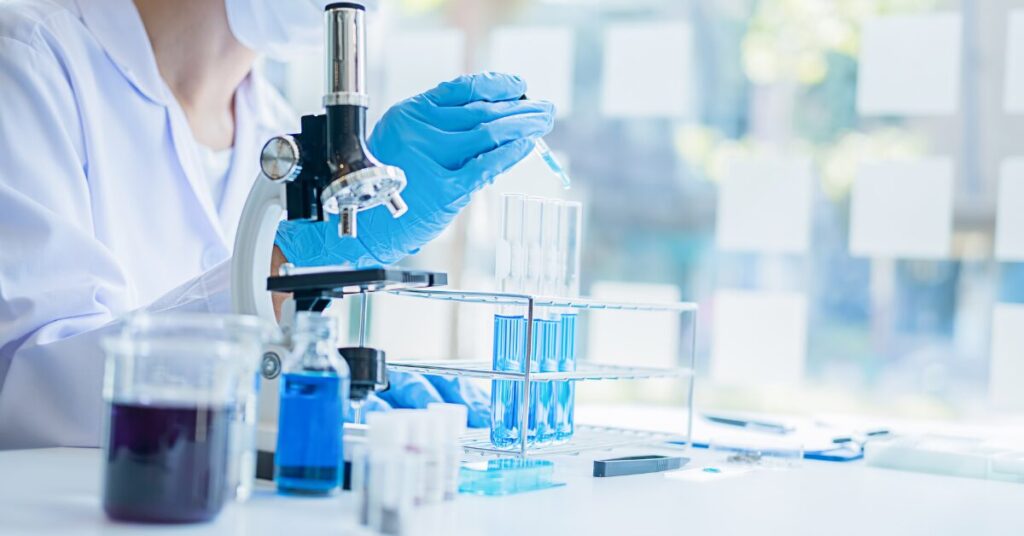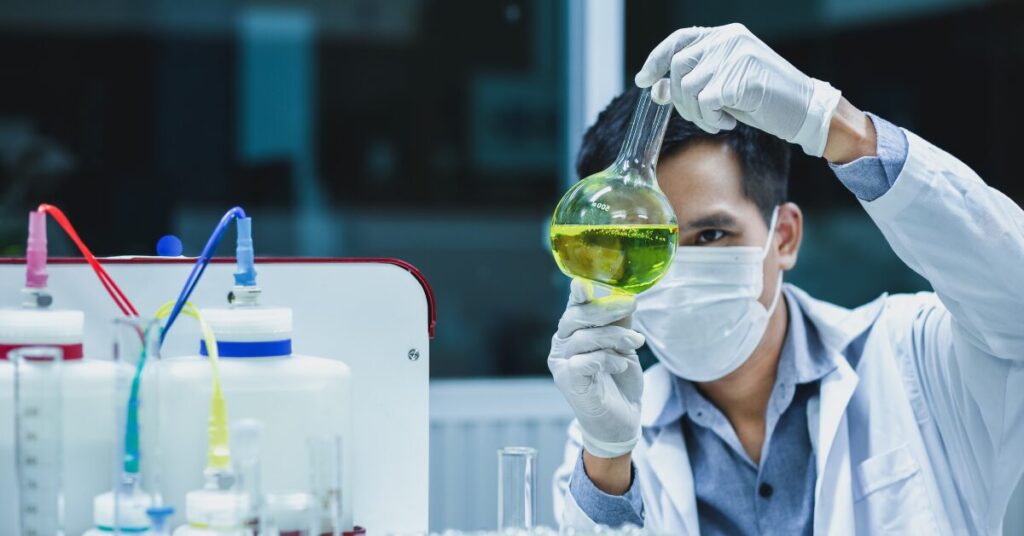5 September 2024
5 minutes read
What is a GRE Chemistry Subject Test (GRE Chemistry Test)?

Key Takeaways
- The GRE Chemistry exam tests your knowledge across organic, inorganic, physical, and analytical chemistry.
- Use full-length practice tests and focused study sessions to identify strengths and improve weaknesses.
- Prioritize high-yield topics like thermodynamics and spectroscopy for better performance on test day.
Did you know that over 20,000 test-takers attempt the GRE Chemistry Subject Test annually, with hopes of gaining a competitive edge in grad school admissions? Yet, many students face a major challenge: despite being confident in their chemistry knowledge, the test’s depth and scope often catch them off guard. It’s a common struggle—knowing your subject well but feeling unprepared for the specific testing format.
So, how can you tackle this? The key is understanding the test’s structure and familiarizing yourself with targeted practice. Realistically, it’s not just about brushing up on general chemistry; you need to align your preparation with the test’s design. Doing so can help you feel more in control on test day and, ultimately, boost your score without the stress of last-minute cramming.
What do you mean by GRE Chemistry Subject Test?
The GRE Chemistry Subject Test is designed to assess an applicant’s understanding of chemistry at the undergraduate level. This subject test covers key areas such as organic chemistry, inorganic chemistry, physical chemistry, and analytical chemistry. The exam consists of multiple-choice questions and lasts for 2 hours and 50 minutes, giving test-takers a chance to showcase their grasp of topics like thermodynamics, quantum mechanics, acid-base reactions, and atomic bonds. GRE Chemistry scores help graduate programs evaluate how well-prepared you are for advanced study in chemistry.

Taking the GRE Chemistry test requires thoughtful test prep and familiarity with the types of questions you’ll face. The chemistry test analyzes your knowledge in areas like spectroscopy, ions, and bonds, reflecting the core concepts from your degree in chemistry. To succeed on test day, applicants should follow a study guide to cover all sections of the exam within 2 hours. Achieving a strong score can boost your admission chances for graduate programs and help you stand out in the competitive field of chemistry.
What is the GRE Chemistry Test Syllabus?
The GRE Chemistry Test syllabus covers critical areas that test takers need to master in the field of chemistry. The GRE Chemistry exam consists of 130 multiple-choice questions, testing your knowledge of subjects like equilibrium, reaction mechanisms, acid strength, synthesis, nomenclature, and chemical kinetics. This test is intended for individuals pursuing a Ph.D. and is designed to assess your readiness for graduate-level work. Tested on the GRE, these chemistry questions cover main group elements, functional groups, coordination compounds, and more, reflecting years of experience in the subject. All you have to do is choose the right GRE books.
Preparing for the GRE Chemistry subject test involves full-length practice tests and diagnostic tools to help you identify your strengths and weaknesses. Beginning in September 2023, the exam will remain reportable for 5 years and will be standardized by the Educational Testing Service. Committees of examiners review and update the syllabus to include the latest concepts like photochemistry, substitution reactions, and chemical properties of metals. GRE biochemistry test is also a prominent topic for the exam. The book includes detailed explanations for every question, helping you systematically prepare for exam day and improve your performance across key concepts tested on the exam. Make sure to have a clear idea of whether you can use a GRE calculator for the exam.
What will be the best score on the GRE Chemistry subject test?
The highest score you can achieve on the GRE Chemistry Subject Test is 990. However, it’s important to note that a perfect score isn’t always necessary to impress admissions committees for graduate programs. What matters most is how your score compares to other test takers and aligns with the requirements of the programs you’re applying to. Also the GRE average score in India matters as well.
To make the most out of your score, aim for consistent preparation across all sections of the GRE Chemistry exam. By focusing on your strengths and addressing any weaknesses, you can increase your chances of scoring in the upper percentiles—usually seen as a strong indicator of readiness for advanced study in the field of chemistry. Keep your GRE appointment number handy.
How to Prepare for the GRE Chemistry Subject Test?

Preparing for the GRE Chemistry Subject Test requires a well-planned strategy, discipline, and a deep understanding of the core concepts in chemistry. Here’s a step-by-step guide to help you prepare effectively:
1. Understand the Syllabus Thoroughly
The GRE Chemistry Subject Test covers four major areas: organic chemistry, inorganic chemistry, physical chemistry, and analytical chemistry. Before diving into preparation, review the official syllabus in detail. Identify the topics under each section, such as reaction mechanisms, equilibrium, acid-base chemistry, and spectroscopy. Knowing the breadth of topics will help you gauge how much time and effort each section requires based on your strengths and weaknesses. Also, focus on these elements when you do your GRE application.
2. Use a Study Guide Tailored to the GRE Chemistry Exam
Invest in a reliable study guide specifically designed for the GRE Chemistry test. The book should include practice tests, detailed explanations, and a comprehensive review of the subject areas. Focus on a guide that provides insights into test structure, types of questions, and key concepts like chemical kinetics, quantum mechanics, and coordination compounds. These materials will help you standardize your preparation and offer concise explanations that can solidify your understanding. Keep your GRE admit card handy until the whole process gets over.
3. Practice with Full-Length Tests and Timed Quizzes
Familiarity with the exam format is key to success. Take full-length practice tests to simulate real test conditions, helping you adjust to the time constraints of the 2 hours and 50 minutes exam. Timed quizzes will sharpen your ability to handle multiple-choice questions efficiently. After each test, analyze your performance, and use diagnostic tools to identify where you need improvement. Address your weaknesses systematically in the weeks leading up to the exam. This must be included in your GRE action plan.
4. Deep Dive into Core Topics
Instead of skimming through every topic, focus on understanding the fundamentals deeply. For example, ensure you can confidently solve problems related to thermodynamics, quantum mechanics, and reaction mechanisms. Break down complex areas like photochemistry, organic synthesis, and chemical properties into manageable sections. Regular review of these core topics will increase your familiarity and help you retain information better.
5. Review High-Yield Topics Regularly
Certain areas of chemistry, such as nomenclature, atomic structure, and spectroscopy, often carry more weight on the GRE Chemistry test. Make these high-yield topics a priority. Dedicate extra time to practice these concepts and revisit them frequently. This ensures that you are not only familiar with them but can also answer questions confidently under exam conditions. Also, have a clear idea of whether GRE has negative marking or not.
Conclusion
Preparing for the GRE Chemistry Subject Test requires a clear strategy, dedication, and in-depth understanding of the core topics. By familiarizing yourself with the test syllabus, using reliable study guides, practicing consistently, and seeking support when needed, you can approach the exam with confidence. A well-rounded preparation plan will not only help you perform your best on test day but also strengthen your foundation for graduate-level studies in chemistry.
Score Higher on the GRE: Ambitio’s Bootcamp is Your Secret Weapon! Gain insider knowledge and strategies from GRE experts, turning your prep into a strategic advantage on test day.
FAQs
How important is the GRE Chemistry score for graduate admissions?
Your GRE Chemistry score can play a significant role in your application, particularly for competitive Ph.D. and graduate programs.
What are some common mistakes students make during the GRE Chemistry test?
Mismanaging time and not being familiar with the format of multiple-choice questions are common issues for test takers.
How much time should I dedicate to preparing for the GRE Chemistry exam?
On average, a few months of consistent preparation, focusing on both review and practice, is recommended.
Do I need to memorize the periodic table for the GRE Chemistry Subject Test?
While memorization isn’t necessary, understanding periodic trends and properties of elements is crucial.
Is it possible to retake the GRE Chemistry Subject Test if I’m not satisfied with my score?
Yes, you can retake the test, and many schools will consider your highest score for admissions.
Are calculators allowed during the GRE Chemistry test?
No, calculators are not permitted during the GRE Chemistry Subject Test.
How can I best utilize my GRE Chemistry score report after the exam?
Review your score report to identify strengths and areas for improvement, which can guide your future academic or test-taking strategies.

You can study at top universities worldwide!
Get expert tips and tricks to get into top universities with a free expert session.
Book Your Free 30-Minute Session Now! Book a call now




























